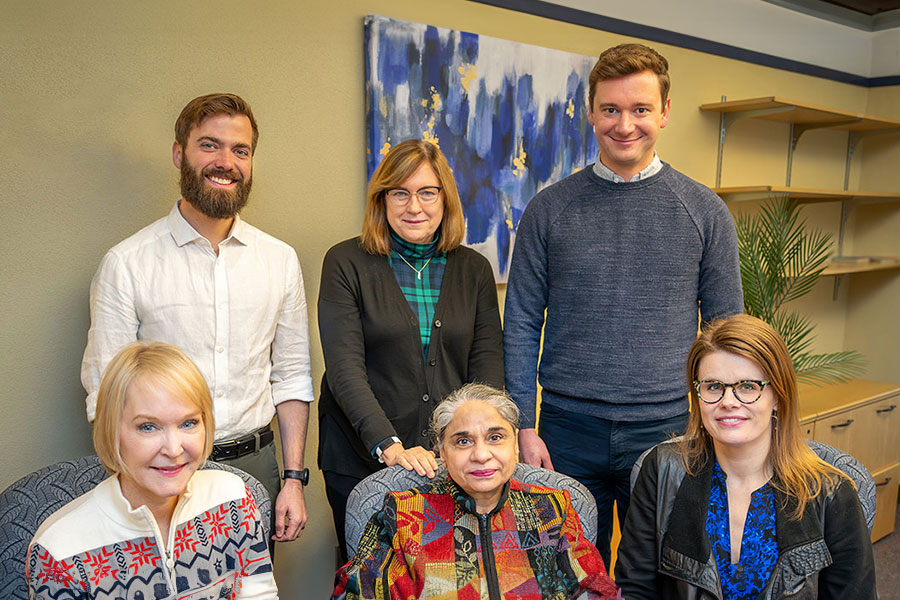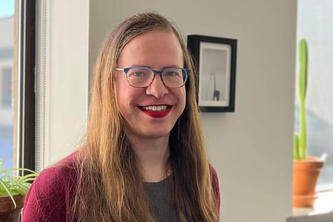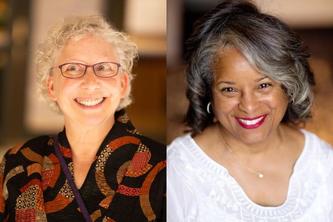
Malaysia is the largest recipient of refugees and asylum-seekers in Southeast Asia. Recent reports place the number of registered refugees at 180,440. Additional estimates suggest there may be as many as 140,000 unregistered individuals seeking asylum in the country.
Many of these asylum-seekers experienced war trauma and torture, which places them at a higher risk of developing serious psychiatric illnesses, including post-traumatic stress disorder and major depression. Thus, a need for evidence-based, trauma-focused, and culturally adapted training for the treatment of refugee trauma survivors is urgently needed.
To combat these challenges, experts at the University of Minnesota’s College of Education and Human Development (CEHD), have partnered with colleagues in Malaysia to develop a 30-hour virtual curriculum for mental-health practitioners to help address this need.
In 2021, Mahinder Kaur, a psychoanalyst from Malaysia living in St. Paul, was supervising school-based practitioners who were working with child trauma survivors from refugee families in Kuala Lumpur, the Malaysian capital. Her involvement with the school became the impetus to set up a trauma treatment training program.
“Many of the practitioners did not have training in trauma treatment to help refugee families with trauma-related symptoms and problems,” says Patricia Shannon, a licensed psychologist and an associate professor in the U of M School of Social Work. “Dr. Mahinder had been searching for a way to bring trauma education to Malaysia, and she reached out to me due to my background teaching trauma treatment and providing treatment to refugees and asylum seekers from around the world.”
Shannon recognized the need and saw an opportunity where Zoom might offer an opportunity for international training. She then contacted fellow experts Chris Mehus, a research assistant professor in CEHD’s Department of Family Social Science, and Julie Rohovit, the director of the Center for Practice Transformation.
Together, they developed a 30-hour, 10-week curriculum to support refugee trauma survivors in Malaysia. The virtual curriculum incorporates elements such as understanding secondary trauma and self-care, assessment and diagnosis, and culturally adapted treatment interventions, all of which were developed in partnership with Malaysian providers.
The project's objective was to collaboratively develop and evaluate the feasibility of a practical, scalable, and sustainable model for international trauma training for mental health practitioners. This approach is essential because it addresses concerns about Western practitioners attempting to solve problems in communities without adequately involving local stakeholders. The collaborative approach, involving local participants and stakeholders, ensures that the training aligns with their needs.
“This training was designed not only to enhance the clinicians’ understanding of trauma and its effects but also to provide them with practical tools and techniques for effectively assisting refugees who have experienced severe stress and trauma,” Kaur says. “By doing so, the intention was to improve the overall quality of mental health services available to this vulnerable group.”
On a fundamental level, the training seeks to foster greater awareness among clinicians about the complexities of trauma, especially in the context of the refugee experience, Kaur says.
“By empowering these professionals with a deeper understanding and practical approaches to trauma treatment, the hope was to enhance the therapeutic outcomes for refugees, leading to improved mental health and well-being,” she adds.
Mohamed Faiz, a registered clinical psychologist and senior lecturer at one of the main universities in Malaysia, is already working on sharing what he’s learned. “I started to integrate the knowledge from the course into our academic curriculum at the doctoral level, which focuses on trauma,” he says. “I see a huge potential to train others, especially our in-house clinical trainees at the postgraduate level.”
As the project continues, Rohovit says two central goals for its future are decolonization and accessibility. Although this project is currently based in Malaysia, a longer-term goal involves building a collaborative center for trauma education serving all of Southeast Asia.
Through its collaborative approach and commitment to decolonizing knowledge, this pioneering effort stands as a beacon of progress in the field and offers hope for improved mental health outcomes in Southeast Asia and beyond.
This story was adapted from the U of M College of Education and Human Development. See the original story.
- Categories:
- Education
- Human development





